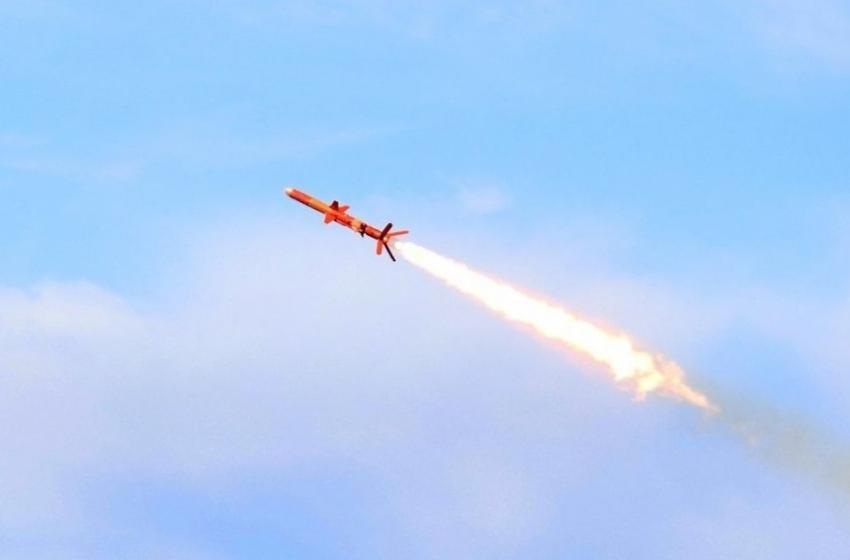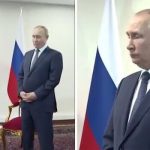The timing and location of Russia’s latest attacks shows that the southern Ukrainian city is more important than ever to the Russian leader, for symbolic and strategic reasons.
-Analysis-
When Moscow and Kyiv signed their UN-brokered “Black Sea initiative” deal Friday in Istanbul, Ukraine’s southern ports were set to reopen and resume the regular flow of wheat and maize exports.
But within hours the most important of those Ukrainian ports came under fire from a Russian missile attack. Moscow, after first denying responsibility, later claimed to having launched the strike at military targets and that no grain storage facilities had been hit.
Stay up-to-date with the latest on the Russia-Ukraine war, with our exclusive international coverage.
“The attack is connected exclusively with military infrastructure. This is in no way related to the infrastructure that is used to fulfill the agreements and export of grain,” Kremlin spokesman Dmitriy Peskov told state-run media site Ria Novosti.
And yet, it is impossible to deny that the timing — and location — was anything but intentional.
Ukraine along with its international partners vehemently condemned the attack, while President Volodymyr Zelenskiy used his nightly address on Saturday to accuse Russia of “barbarism”, saying the attack had “destroyed the very possibility” of dialogue with Moscow.
Deep history, strategic location
Whether or not the attack was intended to destroy grain or military supplies, it raises deep suspicions as to Putin’s ultimate intentions in Odessa.
Since the early weeks of the war, the southern port city has been viewed as both a strategic and symbolic location on Russia’s war map and served as a worrying marker to Western leaders that violence has the potential to spill over into neighboring Moldova, itself dealing with its own internal battle with pro-Russian separatists in the breakaway republic of Transnistria. Missile attacks like the one Saturday have been an occasional, though until now, not regular occurrence in the city of just over 1 million inhabitants.
A lever on the world’s food supply.
But Odessa has stood to mean far more than that, since long before the war began. Following Putin’s Annexation of Crimea in 2014, Odessa repelled Russian troops and rejected their pseudo-referendums. Known as the “Pearl by the Sea,” Odessa has long been a travel destination and well-known for a thriving economy and lively mix of cultures and ethnicities.
Now, in the context of the grain agreement, its significance has multiplied: a unique vantage point from which to control the development of the world food crisis.
The capture or destruction of Odessa (as was done in Mariupol, another port city 600 kilometers due east) would allow Russia to have its hand on the lever on the world’s food supply. Indeed, the US Ambassador to Ukraine warned of this on Twitter: despite the signing of the grain export agreement, ‘the Kremlin continues to weaponize food. Russia must be held to account.’
Odessa is also considered Ukraine’s “southern capital,” just as both sides gear up for a battle for territory in the south after months of fighting in the eastern Donbas.

At Odessa’s port after the Russian missile attackCover Images via ZUMA
The attack also comes as Russian Foreign Minister Sergei Lavrov embarks on a tour of several countries in Africa. With 44% of Africa’s wheat coming from Russia and Ukraine, Moscow’s intentions may well be cynically aligned with keeping Africa dependent on Russia.
Having cultivated ties in the region through commodities, weapons and energy deals, as well as by deploying Russian mercenaries linked to the Kremlin (such as the Wagner Group) to support local political leaders or movements in some areas and foment discord in others, Russia hopes to deepen Africa’s reliance on the Kremlin, and thereby widen its sphere of influence.
A spit in the face.
But there is perhaps another motivation behind the attack on Odessa’s port. Ukrainian Foreign Ministry spokesman Oleg Nikolenko summed it up when he said “The Russian missile is Vladimir Putin’s spit in the face of UN Secretary General António Guterres and Turkish President Recep Tayyip Erdogan, who have made great efforts to reach an agreement (on grain exports), and to whom Ukraine is grateful.”
When Guterres visited Kyiv in April, Russia launched missile strikes on the Ukrainian capital in an apparent attempt to raise the stakes of the war. Now, Putin seems once again desperate to provoke, hoping that in so doing the West will bite back and he will be justified in further escalating the situation.
But if we’ve learned anything from Putin’s behavior over the last few months, it’s that he needs no pretext to launch an attack. Russia’s word, by now, means nothing. The West should be fearful that while the Kremlin leaders may be signing a treaty with one hand, they may well be sharpening their knives with the other.
Source: worldcrunch.com



